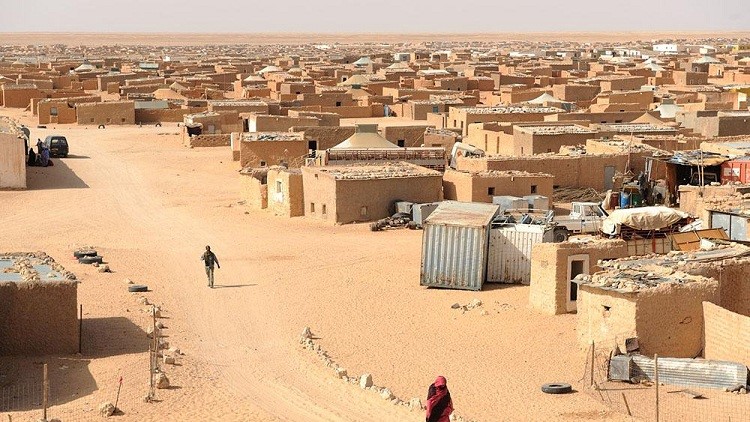Eduardo González
The Ministry of Foreign Affairs has raised the level of terrorist alert in the travel recommendations to Tindouf, in Algeria, a decision that has outraged the Polisario Front, which has described as “reprehensible” the use of “the scourge of terrorism” to “dissuade” Spaniards from visiting the Sahrawi refugee camps.
In its latest update of the travel recommendations to Algeria, published in the second half of February, the Ministry warns, in capital letters, of a “terrorist threat against Spanish citizens in the area of the Sahrawi camps.” “Given the possibility of kidnappings and attacks against Spaniards in the Sahrawi camps of Tindouf, it is recommended not (in capital letters) to travel to the area and that all Spanish travelers whose presence is not essential leave it as soon as possible,” Foreign Ministry warns.
The Ministry bases its alert on “the terrorist threat against Spanish citizens in the area of the Sahrawi camps”, especially after “the growing instability in the north of Mali and the consequent increase in the activity of terrorist groups in the region affect the security situation in the area where the Sahrawi camps of Tindouf are located.”
This update of the travel recommendations to Tindouf has especially bothered the Polisario Front, whose representative in Madrid, Abdulah Arabi, denounced around the same time in a press release that it is a “reprehensible, absolutely inappropriate decision, decontextualized and framed in the strategy of continuing to hinder the effective exercise of the people of Western Sahara to their free self-determination and independence.”
“It is reprehensible that, in order to dissuade Spanish citizens from visiting the camps where the people of Western Sahara continue to resist, the Ministry resorts to the scourge of terrorism, which represents one of the greatest challenges that faced by the countries of the region – including the Sahrawi Arab Democratic Republic – and to which, for this reason, the African Union dedicates numerous efforts,” he continued.
“The Polisario Front has always guaranteed the safety of all the people who have traveled to the camps,” Arabi said. “It is worth recognizing the predisposition and commitment of all the people and entities that have conveyed to this Representation their firm intention to travel to the territory, despite the Ministry’s recommendations, to continue accompanying and supporting the Sahrawi refugee population,” he concluded.
Precedent in 2019
A similar situation arose in November 2019, when the Ministry of Foreign Affairs warned, in its travel recommendations, that “the growing instability in northern Mali and the consequent increase in activity of terrorist groups in the region may affect “to the security situation in the area where the Sahrawi camps of Tindouf are located, which is why travel to that area is discouraged.” Around the same time, the Minister of Defense, Margarita Robles (who was about to temporarily assume the duties of Minister of Foreign Affairs, replacing Josep Borrell), warned that the secret services had “found that the Islamic State was planning a attack against Spanish interests in the Sahara.”
That alert was also harshly criticized by the Government of the Sahrawi Arab Democratic Republic (SADR), controlled by the Polisario Front, which described those warnings as “unjustifiable.” “It is Spain, in complicity with Morocco and France, that prefabricated the fallacies and the existence of horror and imminent danger in the Sahrawi refugee camps” with the aim of “intimidating and forcing humanitarian organizations to stop their activities and abandon, and in this way reduce the humanitarian support provided to these refugees,” he denounced in a statement.
A few days later, at the beginning of December 2019, the Ministry of Foreign Affairs once again raised the level of the terrorist alert in Tindouf and assured that the UN mission itself (MINURSO) had corroborated the risk of imminent attacks “against Spaniards.” in the Sahrawi refugee camps.
That controversy occurred well before the Government of Pedro Sánchez announced, in March 2022, its decision to recognize the Moroccan autonomy plan for Western Sahara as “the most serious and realistic basis” for the solution to the conflict. That “historic turn”, which was rejected by the entire rest of the parliamentary arc, including the government partners, made it possible to overcome the very serious diplomatic crisis between Spain and Morocco (which broke out in April 2021 after Spain’s decision to shelter in a hospital from Logroño to the leader of the Polisario Front, Brahim Ghali, for humanitarian reasons) at the price of starting another one with Algeria. It was also reflected in a growing, and criticized, complicity between Spain and Morocco in matters of human rights.







